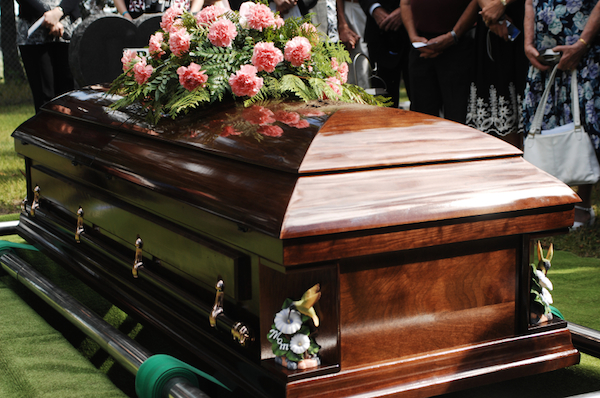There is no correct or incorrect answer to the question of whether or not a child should go to the funeral of a loved one, but there are several factors that should be considered.
The fact that a child attends the funeral of a loved one will be a fact that will impact him/her for a long time, especially taking into account that the deceased had with the child.
Taking this into account, you have to give information to the child and let him/her assimilate and make the decision to attend or not, according to his age and maturity.
It is considered that from the age of 4 you can consider talking about the subject of death and funerals with children, in the case of older children you can consider wearing them.
10 steps to follow to help you raise the issue in the best way
1.Consider the age of the child. Babies or children under 4 or 5 years old do not understand the concept of death and the fact that they will never see the deceased again, so it is not convenient to take them to these events.
Also you should consider that the noises of the babies can disturb the grieving family.
2.Explain how a funeral is. It helps a lot if the child knows what to expect from a funeral. Explain that it is customary at the funeral to say goodbye to the deceased and remember them.
She/he will see many people sad and perhaps crying for the loss. Explain that it is possible that some laugh when remembering the good moments lived with the deceased. Talk about the meaning of bringing flowers at the funeral, as symbols of love for the deceased.
3.Talk to the child about the meaning of death. It is important that you talk to the child no matter their ages, about how irreversible death is.
Do it clearly and simply; tell him/her that the body of the deceased will no longer work, that it can not speak, eat, or breathe.
Mention that the body of the deceased remains the same as before, that is, head, legs, arms, among others .. as always, but kept in a very special and comfortable box called “coffin”.
4.Do not force him to attend the funeral. Give the option to choose if he/she wants to go or not.
5.Anticipate who will go to the funeral. Ask him/her if he/she wants to write something about the deceased and read it during the service. First of all, do not force him/her to do something he/she does not want.
6.Now, if the child is over 8 years old and does not want to go, give time to think about it and ask again. Let me reconsider the option to go. You probably do not want to go because the situation generates too much anxiety.
7.Make sure that if the child decides to attend the funeral, always be accompanied. That the child is accompanied at all times during the funeral is important, because this person can answer any concerns about the child, as well as comfort if necessary. It is preferable that the companion is an adult and trusted child.
8.Let him/her know that you can go at any time. It is important that the child knows that he is not obliged to remain at the funeral during the entire service, he/she may withdraw at any time and we must respect his will, without making him feel guilty or that he is disrespecting the event.
If the child wants to touch or kiss the deceased, leave it. It does not have to surprise us if the child asks us to touch or kiss the deceased, we can let him do it. However, it must be warned that the body can be cold.
9.Body turned to ashes. If the deceased is going to be cremated it is advisable to explain to the small child that the body will be taken to a room where the temperature is too high to be able to transform it into ashes. Let’s avoid saying that the body will be “burned”.
10.If you want to cry, cry. If during the funeral, you, adult, have the need to cry and your child is present, do it. The important thing is that the child sees that just as you can get sad, you can also regain control and move on.














